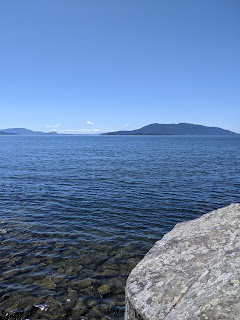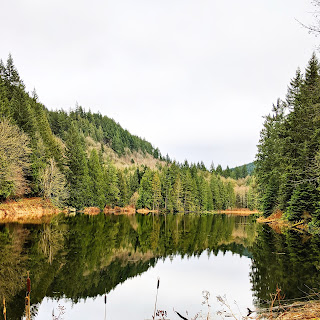Accumulation and the Rules for Acquisition
Have I mentioned lately my great distaste for consumerism? No? Then you must not know me very well!
I've been doing a bit of reading on economic systems this week (the things we do for "fun"). The rabbit trail has been interesting, but most sources seem to break things down into the three main systems: Capitalism, Communism, and Socialism.
None of these satisfy me, but before I explain why let us look at some simple definitions of each of these major models:
Capitalism: USA! USA! Wait, no? Okay. Yeah, capitalism is not just the economic model followed by the USA, it is also what 'patriots' carry AR-15s to protect AND it's the official state religion. The general definition is that the ownership and transfer of goods and services is privately controlled, not state controlled. In practice, the corporations become the government and the interests of the richest become the law of the land, thus everyone else is then controlled by the mass consumerism necessary to uphold the mega rich and their corporations. This system is driven by profit (at the cost of all else).
Communism: The textbook definition is that the means of production are held in common, with the outputs being evenly distributed to all. Everyone gets the same thing, and there is no private ownership. In practice, the state usually controls the means of production (supposedly at the behest of the people), and the state decides how much people need/get. Although it looks great in theory, it's hard to keep the corruption out when more than a few people are involved. This system is driven by equality (but not necessarily equity).
Socialism: Socialism is sort of a mixture of the above two systems. The means of production are controlled by the workers, and production is done based on need not profit. There is a combination of common and privately held commodities. In practice, this system seems to fail because it either A) starts to become profit driven and classism leaks in, or B) authoritarianism leaks into the race for equity and it slips into authoritarian communism. This system is driven by the worker/owners, but is still also profit or power driven.
What are your ideas on the ideal economic model for the ideal society?
If you have enjoyed my writing and would like to support my project, the rEvolution Collective, please visit my Patreon Page. We are working to create an environmental education center and community in Northwest Washington State.
I've been doing a bit of reading on economic systems this week (the things we do for "fun"). The rabbit trail has been interesting, but most sources seem to break things down into the three main systems: Capitalism, Communism, and Socialism.
None of these satisfy me, but before I explain why let us look at some simple definitions of each of these major models:
Capitalism: USA! USA! Wait, no? Okay. Yeah, capitalism is not just the economic model followed by the USA, it is also what 'patriots' carry AR-15s to protect AND it's the official state religion. The general definition is that the ownership and transfer of goods and services is privately controlled, not state controlled. In practice, the corporations become the government and the interests of the richest become the law of the land, thus everyone else is then controlled by the mass consumerism necessary to uphold the mega rich and their corporations. This system is driven by profit (at the cost of all else).
Communism: The textbook definition is that the means of production are held in common, with the outputs being evenly distributed to all. Everyone gets the same thing, and there is no private ownership. In practice, the state usually controls the means of production (supposedly at the behest of the people), and the state decides how much people need/get. Although it looks great in theory, it's hard to keep the corruption out when more than a few people are involved. This system is driven by equality (but not necessarily equity).
Socialism: Socialism is sort of a mixture of the above two systems. The means of production are controlled by the workers, and production is done based on need not profit. There is a combination of common and privately held commodities. In practice, this system seems to fail because it either A) starts to become profit driven and classism leaks in, or B) authoritarianism leaks into the race for equity and it slips into authoritarian communism. This system is driven by the worker/owners, but is still also profit or power driven.
So What Would an Ideal Economic System Look Like to Me?
The short answer is I have no fucking clue! All three of the main systems above are driven by two things I absolutely abhor:
1) Consumerism
2) Unnecessary work
Let's address these issues separately, shall we?
Consumerism
Consumerism is the big bad bogey man hiding in everyone's overflowing closet. It's Peak Human Competition at its worst. Consumerism is what drives "jobs creation," you know that talking point every politician uses to get elected? Consumerism is why things are not made to last, why everything seems disposable, why we have "must-have" items to fit in socially.
In fact, we need few things to be content in life. We don't need to upgrade our tech annually, buy a new car every four years, or move from starter home to McMansion. Consumerism makes us think we do because the more shit we buy, the more the corporations get. It's a greed based system where the only winners are no one, mainly because we have pillaged our natural resources to fuel the beast and lost our identities in the process.
Capitalism is the most consumeristic of the the three main economic models, but the other two aren't far behind. Communism tends to fuel consumerism in an attempt for equal distribution, but the bar for equality either becomes skewed (and you end up with two very distinct classes -- the state at the top and the worker at the bottom). Socialism is also just as prone to excessive consumerism as each worker-owned production cooperative tries to accumulate more than the next one.
Unnecessary Work
In the USA we love to call people lazy if they aren't putting in 40 hours, and preferably more. "Hard working American" is a complement, when it should actually be a negative judgement.
The 8 hour work day can be traced back to the industrial revolution, when factory owners wanted two things -- peak productivity and a tame workforce. A tame workforce is a tired workforce, and 8 hours worked well to secure that. A work day, with prep, breaks, and commutes, it likely closer to 12 hours for most people. That leaves four hours to attend to family, downtime, and hobbies. Weekends are taken up with finishing personal stuff there is no time for during the week, working a second job, or cramming in relaxation until it feels like a chore. The "ideal" work week leaves you too tired to quit, start your own gig, or worse, rebel against the system.
Look at an agrarian culture to see how much you should really be working. Averaged annually, the typical person in an agrarian society works about four hours a day. The rest of that time is their own to create or recreate as they see fit. True, some seasons see 16 hour work days and others see zero hour work days, but there is still balance.
If we shortened work hours in our non-agrarian society, and made it so people didn't have to work 40+ hours to simply survive, we would likely see a boom in innovation and creativity. People would have time to learn new skills and participate in society-benefiting hobbies, like citizen science and basement engineering projects, at record numbers.
Embrace the laze -- it's our right as human animals!
So Now What?
I've been reading up on some alternative economic systems and I'm still not sure where I lie. Mutualism is interesting, but it's still so tied up in capitalism that it gives me pause. Participatory Economics (parecon) interests me the most, but even it has its difficulties.
Add to all of this that I am not an economist and that the subject is pretty boring for a layperson!
Parecon is socialist at its most basic level, but it is decentralized and differs in implementation. In fact, Parecon could be considered the basis for the "post scarcity economy" found in the Star Trek universe. (Further reading on this topic, if you are a nerd.)
I myself need to read more and research more, before I know where I stand on the ideal economy in the post-consumerist world. I will end by saying the key points I think are important:
- Low consumerism/sustainable consumption
- Decentralized with the workers in control of their own destiny
- Not profit driven, only need driven
- No legacy ownership - you can't pass down property, businesses, ideas
- Puts the ecological concerns first
- Benefits the whole, not just the individual
What are your ideas on the ideal economic model for the ideal society?
If you have enjoyed my writing and would like to support my project, the rEvolution Collective, please visit my Patreon Page. We are working to create an environmental education center and community in Northwest Washington State.





Comments
Post a Comment